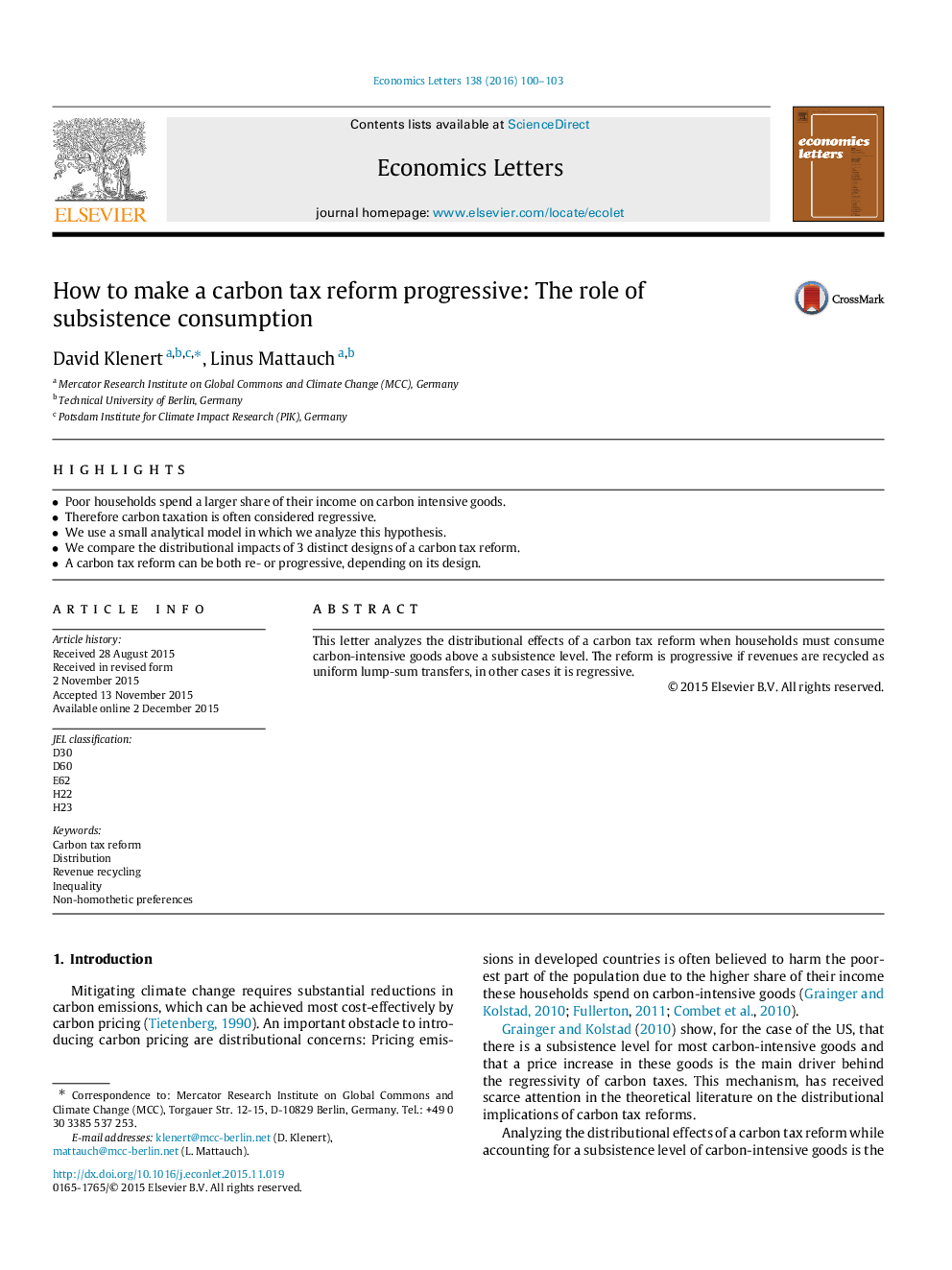| Article ID | Journal | Published Year | Pages | File Type |
|---|---|---|---|---|
| 5058403 | Economics Letters | 2016 | 4 Pages |
Abstract
â¢Poor households spend a larger share of their income on carbon intensive goods.â¢Therefore carbon taxation is often considered regressive.â¢We use a small analytical model in which we analyze this hypothesis.â¢We compare the distributional impacts of 3 distinct designs of a carbon tax reform.â¢A carbon tax reform can be both re- or progressive, depending on its design.
This letter analyzes the distributional effects of a carbon tax reform when households must consume carbon-intensive goods above a subsistence level. The reform is progressive if revenues are recycled as uniform lump-sum transfers, in other cases it is regressive.
Related Topics
Social Sciences and Humanities
Economics, Econometrics and Finance
Economics and Econometrics
Authors
David Klenert, Linus Mattauch,
